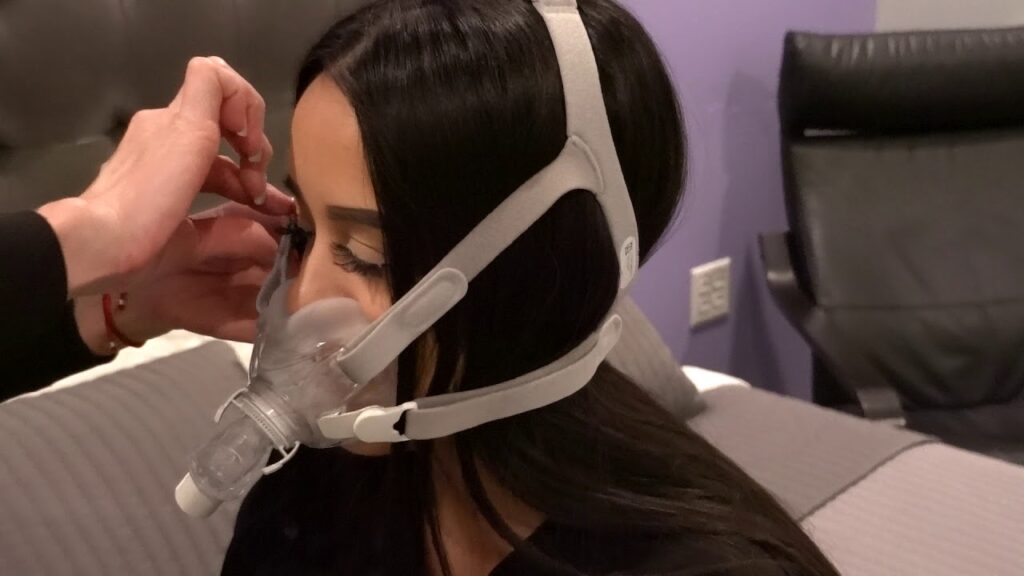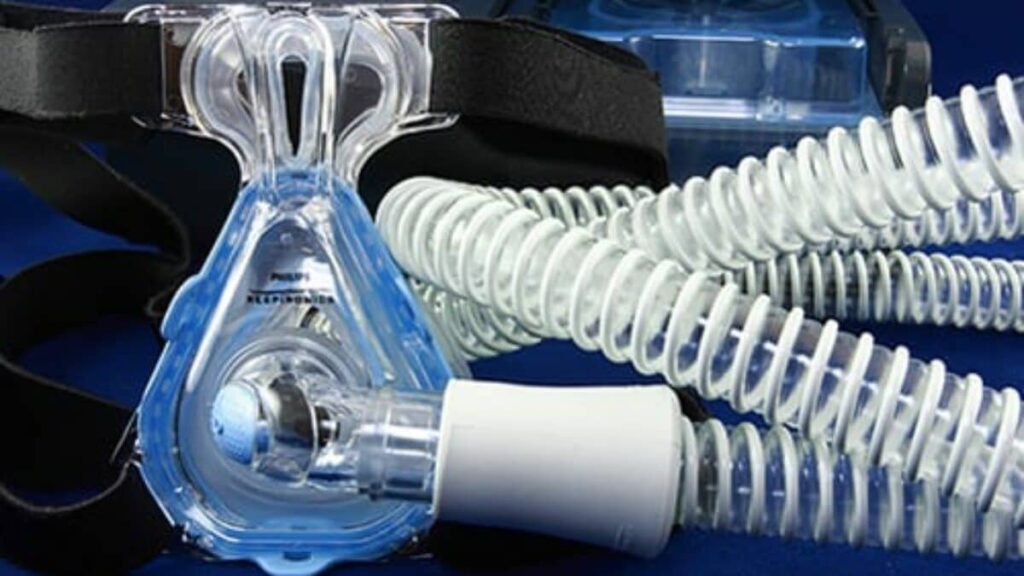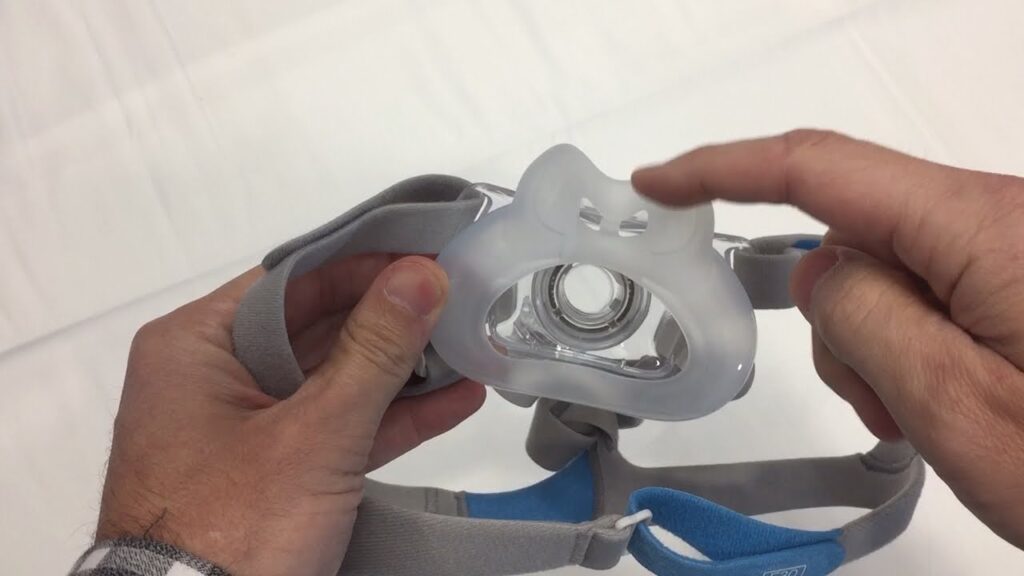Have you ever experienced skin irritation or allergic reactions while using a CPAP mask? If so, it may be time to reevaluate the materials used in your mask and find one that suits your skin. The materials in CPAP masks play a crucial role in both comfort and functionality, and understanding their importance can help you make an informed decision when selecting a mask.
Understanding the Importance of Material Selection in CPAP Masks
When it comes to best cpap mask, material selection is essential for various reasons. Firstly, the right materials can ensure a comfortable and secure fit on your face throughout the night. A mask that fits properly not only improves the quality of your sleep but also minimizes the chances of air leakage, a common issue faced by CPAP users.
Furthermore, the materials used in CPAP masks can determine the durability and longevity of the mask. Investing in a high-quality mask with durable materials can save you from the hassle and cost of frequent replacements.
Lastly, the materials in CPAP masks can have a significant impact on skin health. Certain materials may trigger allergies or cause skin irritation, leading to redness, itching, and discomfort. By selecting a mask with skin-friendly materials, you can minimize the risk of unpleasant skin reactions. Learn more about role of resmed airmini in managing sleep apnea.

The Role of Materials in Comfort and Functionality
The comfort and functionality of a CPAP mask depend on the materials used for its construction. Masks made of softer and hypoallergenic materials tend to be more comfortable, particularly for individuals with sensitive skin. They offer a gentle and cushioned touch that reduces the chances of red marks and pressure sores.
Moreover, the materials used in CPAP masks should have good elasticity and flexibility. These properties allow the mask to adapt to the contours of your face, ensuring a secure seal and preventing air leakage. Masks with silicone seals are particularly popular due to their flexibility, durability, and hypoallergenic nature.
In addition to comfort, the choice of materials can also affect the functionality of the CPAP mask. For example, masks made with gel-based materials offer superior cushioning and conform to the shape of the face, providing a comfortable fit. Foam materials, on the other hand, can provide added comfort and cushioning, especially for individuals with sensitive skin. The foam molds to the face, reducing pressure points and enhancing overall comfort during sleep.
Common Materials Used in CPAP Masks
CPAP masks are typically made from a variety of materials, each with its own advantages and considerations. Some commonly used materials include:
Silicone
Silicone is a popular choice for CPAP masks due to its hypoallergenic properties, durability, and flexibility. It is a versatile material that can withstand frequent use and cleaning without losing its shape or effectiveness.
Gel
Gel-based masks offer cushioning and conform to the shape of the face, providing a comfortable fit. The gel material provides a soft and gentle touch, minimizing the risk of skin irritation and pressure sores.
Foam
Foam materials can provide added comfort and cushioning, particularly for individuals with sensitive skin. The foam molds to the face, reducing pressure points and enhancing overall comfort during sleep. It is a breathable material that allows air circulation, preventing moisture buildup and promoting a dry and comfortable sleeping environment.
Plastic
Some CPAP masks incorporate plastic components for structural support and easy cleaning. Plastic materials are lightweight and durable, making them suitable for long-term use. They are also easy to clean and maintain, ensuring proper hygiene and preventing the growth of bacteria or mold.
Before purchasing a CPAP mask, it is essential to familiarize yourself with the materials used and choose the one that best suits your needs and skin type. Consider consulting with a healthcare professional or CPAP specialist who can guide you in selecting the right material. Remember, the right material selection can make a significant difference in your comfort, sleep quality, and overall CPAP experience.
Allergens and Skin Reactions: What to Know
Allergens present in CPAP masks can trigger skin reactions and cause discomfort. It is crucial to identify the common allergens and understand how they may affect your skin.
When it comes to CPAP masks, there are several allergens that can cause skin reactions. These reactions can range from mild irritation to more severe symptoms. By being aware of these allergens, you can take steps to minimize the risk of skin reactions and ensure a comfortable CPAP experience.
Identifying Common Allergens in CPAP Masks
One of the common allergens in CPAP masks is latex. Latex allergies can cause itching, redness, swelling, and in severe cases, anaphylaxis. If you have a known latex allergy, it is important to avoid masks that contain latex components. Opting for latex-free masks can help prevent allergic reactions and provide peace of mind.
Another potential allergen found in CPAP masks is fragrances and perfumes used in the mask materials. These fragrances may cause irritation, redness, and itching, especially for individuals with sensitive skin. It is essential to be cautious when selecting a mask and opt for fragrance-free options if you are prone to skin reactions.
In addition to latex and fragrances, other materials used in CPAP masks, such as silicone or certain adhesives, can also trigger allergic reactions in some individuals. It is important to read the product labels and consult with your healthcare provider if you have any concerns about potential allergens.

How Allergens Affect Your Skin
Allergens in CPAP masks can cause your skin to become red, itchy, and inflamed. Prolonged exposure to allergens may result in dermatitis or eczema, making it uncomfortable to wear the mask continuously. These skin reactions can disrupt your sleep and affect the effectiveness of your CPAP therapy.
When allergens come into contact with your skin, they can trigger an immune response, leading to the release of histamines. Histamines cause the blood vessels in your skin to dilate, resulting in redness and swelling. The release of histamines can also cause itching, which can be particularly bothersome when wearing a CPAP mask.
It is essential to be proactive in identifying and avoiding allergens that may affect your skin. Opting for hypoallergenic masks or masks labeled as “latex-free” can be beneficial in preventing allergic reactions. Additionally, regularly cleaning and maintaining your CPAP mask can help remove any potential allergens that may have accumulated over time.
If you experience persistent or severe skin reactions despite taking precautions, it is important to consult with your healthcare provider. They can help determine the cause of your skin reactions and recommend alternative mask options or additional treatments to alleviate your symptoms.
The Connection Between CPAP Masks and Skin Health
Using a CPAP mask regularly can have a significant impact on your overall skin health. While CPAP therapy is essential for managing sleep apnea, certain factors associated with CPAP mask usage may contribute to skin problems.
One common issue faced by CPAP users is the development of pressure sores. These sores occur when the mask components place excessive pressure on certain areas of the face, such as the bridge of the nose or the cheeks. The constant pressure can lead to redness, irritation, and even open wounds. To minimize the risk of pressure sores, it is crucial to opt for masks that distribute pressure evenly and have cushioned materials. These types of masks provide a more comfortable fit and reduce the likelihood of skin damage.
Another problem that can arise is excessive sweating underneath the mask, leading to skin irritation and breakouts. The warm and humid environment created by the mask can cause the skin to become damp, promoting the growth of bacteria and fungi. This can result in acne breakouts, rashes, and other skin irritations. To manage this issue, it is important to ensure a proper mask fit. A well-fitted mask will reduce the accumulation of moisture and allow for better air circulation. Additionally, using moisture-wicking materials in the mask can help absorb excess sweat and keep the skin dry.

How to Maintain Skin Health While Using a CPAP Mask
To maintain optimal skin health while using a CPAP mask, it is important to establish a proper skincare routine. Before wearing the mask, cleanse your face thoroughly to remove any dirt, oil, or makeup residue. This step will help prevent the buildup of impurities on the skin’s surface, reducing the risk of clogged pores and breakouts.
After cleansing, it is crucial to moisturize your face adequately. The constant airflow from the CPAP machine can cause dryness, which can lead to skin flakiness and discomfort. Choose a moisturizer that is lightweight, non-comedogenic, and suitable for your skin type. Applying a moisturizer before wearing the mask will help keep your skin hydrated and prevent dryness.
Regularly cleaning the mask and its components is equally essential for maintaining skin health. The mask comes into contact with your face every night, and over time, dirt, oils, and allergens can accumulate on its surface. Follow the manufacturer’s instructions for cleaning and sanitizing your CPAP mask. Typically, this involves washing the mask with mild soap and warm water, rinsing thoroughly, and allowing it to air dry. Regular cleaning will minimize the buildup of impurities and ensure that the mask remains hygienic.
In addition to cleaning the mask, it is important to replace the mask and its components as recommended by the manufacturer. Over time, the materials may degrade, leading to a less effective seal and potential skin issues. By following the recommended replacement schedule, you can ensure that your CPAP mask remains in optimal condition and continues to provide the necessary therapy without compromising your skin health.
Tips for Selecting a CPAP Mask for Sensitive Skin
If you have sensitive skin, selecting the right CPAP mask requires careful consideration of various factors.
Key Factors to Consider When Choosing a CPAP Mask
Firstly, opt for masks made of hypoallergenic materials such as silicone or gel, as they are less likely to trigger skin reactions.
Secondly, ensure the mask offers multiple size options and adjustable straps to achieve a proper fit. A mask that is too tight or loose can cause discomfort and skin irritation.
Lastly, consider masks with cushioned or padded components to provide extra comfort and protection for sensitive skin.
Finding a Balance: Comfort, Functionality, and Skin Health
When selecting a CPAP mask, finding a balance between comfort, functionality, and skin health is paramount. Take the time to try out different masks, consult with healthcare professionals, and read customer reviews to make an informed decision.
Proper Care and Maintenance of Your CPAP Mask
Proper care and maintenance of your CPAP mask are crucial for preserving its functionality and minimizing skin irritation.
Cleaning Techniques to Minimize Allergen Exposure
Regularly cleaning your CPAP mask can help remove allergens, dirt, and oils that accumulate on the surface. Follow the manufacturer’s guidelines for cleaning your mask, but generally, using mild, fragrance-free soap and water is recommended. Avoid using harsh chemicals or abrasive materials that can damage the mask.
Additionally, it is advisable to replace the mask’s filter regularly to ensure clean air delivery and prevent allergen buildup. Consult the manufacturer’s recommendations for the appropriate frequency of filter replacement.
Regular Replacement: A Key to Avoiding Skin Irritation
Over time, the materials in CPAP masks may degrade, leading to decreased comfort and increased skin irritation. It is essential to regularly evaluate the condition of your mask and replace it when necessary.
By following proper care and maintenance practices and being proactive in mask replacement, you can minimize the risk of skin problems and enjoy a comfortable CPAP therapy experience.

